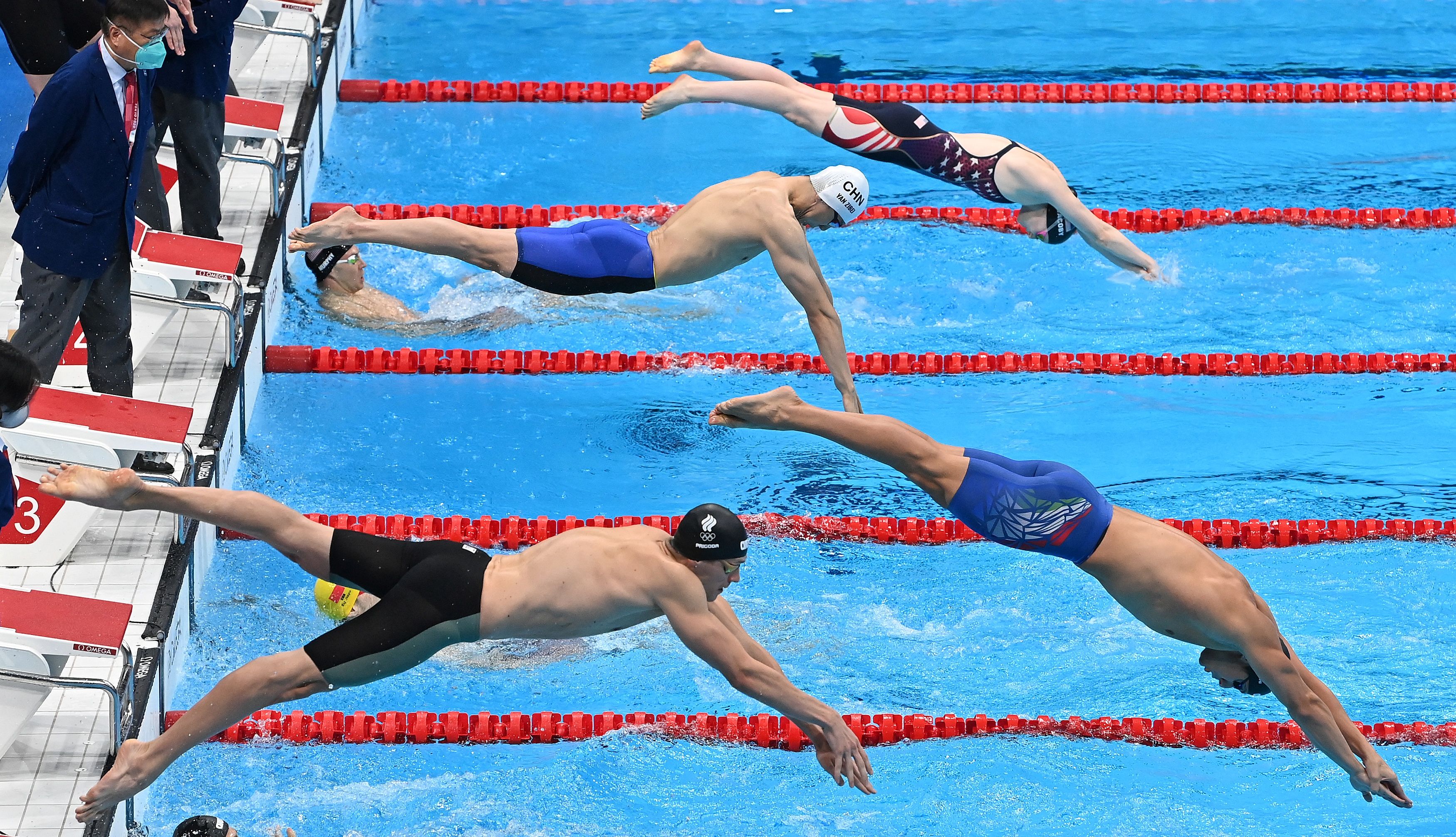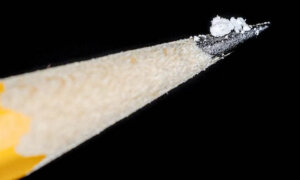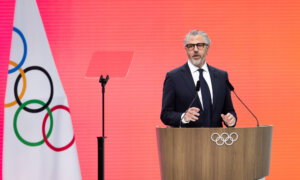A doping dispute involving Chinese swimmers could derail the 2028 Summer Olympics in Los Angeles and the newly awarded 2034 Winter Olympics in Salt Lake City.
The dispute stems from the case of 23 Chinese swimmers who, months before the 2020 Tokyo Olympics, tested positive for trimetazidine, or TMZ, which is used to increase stamina and hasten recovery time.
The World Anti-Doping Agency (WADA) allowed the swimmers to compete, accepting Chinese investigators’ finding that the positive TMZ tests were caused by tainted food in a hotel kitchen. The U.S. anti-doping chief, Travis Tygart, said the ruling amounted to “allowing China to sweep 23 positive cases under the rug.”
Criticizing WADA can have grave consequences.
The International Olympic Committee’s decision on July 24 to allow Salt Lake City to host the Winter Games came with a stern caveat: Hosting rights can be terminated “in cases where the supreme authority of the World Anti-Doping Agency in the fight against doping is not fully respected.”
Mr. Tygart, CEO of the U.S. Anti-Doping Agency (USADA), took issue with the Olympic committee’s stand.
“It is shocking to see the IOC itself stooping to threats in an apparent effort to silence those seeking answers,” he said in a statement, adding that “clean athletes have little chance.”
WADA is reportedly taking USADA to the Independent Compliance Review Court, a nonpolitical body that provides recommendations and oversight regarding compliance matters. A negative decision from the court could revoke the United States’ hosting rights.
“First we have heard about it and if accurate, WADA is continuing the retaliation,” Mr. Tygart said in a statement to Reuters this week.
News about the swimmers’ positive TMZ tests didn’t become public until April, nearly three years after China Anti-Doping Agency’s (CHINADA) investigation concluded.
During a June hearing before a House subcommittee, Olympic gold medalist swimmers Michael Phelps and Allison Schmitt testified about the need for stronger anti-doping measures ahead of the 2024 Paris Olympics.
Mr. Phelps highlighted the stringent drug-testing protocols he was subjected to while he was competing during his swimming career—which sometimes included daily testing—and said it is unfair if other competitors aren’t held to the same standards.
“If everybody else isn’t doing that and I’m subjecting myself to it, it’s just not right,” he said.

Michael Phelps, a former Olympic athlete, speaks during an Oversight and Investigations Subcommittee hearing on "Examining Anti-Doping Measures in Advance of the 2024 Olympics in the Rayburn House Office Building on Capitol Hill on June 25, 2024. (Nathan Howard/Getty Images)
Mr. Tygart publicly criticized WADA’s response to the case of the Chinese swimmers during the hearing and its decision to not appeal CHINADA’s claim that the competitors were accidentally contaminated by the drug.
“Even if you believe this contamination theory, they still didn’t follow the rules, and WADA has now admitted that China didn’t follow the rules. Because even if it’s contamination that caused the positive test ... it still has to be announced for transparency in the system,” he said.
Mr. Tygart said that TMZ didn’t appear like “fairy dust” in the kitchen, despite CHINADA’s claim that the prescription drug managed to contaminate the food of 23 swimmers.
WADA has maintained that it carefully reviewed CHINADA’s 2021 decision to accept the Chinese swimmers’ alleged inadvertent exposure to TMZ.
“As such, and based on the advice of external counsel, WADA considered that an appeal was not warranted,” the organization said in a statement in April 2024.
This year, the U.S. Department of Justice opened an investigation into the incident, drawing criticism from WADA.
“Guided by science and expert consultations, we stand by that good-faith determination in the face of the incomplete and misleading news reports on which this investigation appears to be based,” WADA said in a July 5 statement.
The Justice Department could use the Rodchenkov Act to impose criminal sanctions on people involved in international doping fraud conspiracies, according to the 2020 legislation.
According to the House Committee on Energy and Commerce, 11 of the Chinese swimmers who tested positive for TMZ in 2021 will be competing in the 2024 Paris Olympics that kicked off on July 26.














